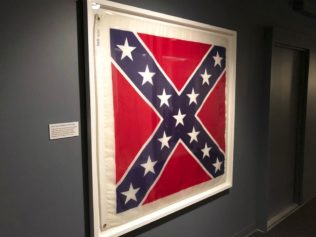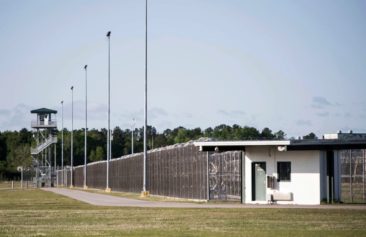“Because of your past history I got a dog coming. Gonna walk a dog around the car.….You gonna pay for this one boy.”
This is what Aiken, S.C. police officer Chris Medlin said to Elijah Pontoon, a Black man, before subjecting him to an illegal anal cavity search in broad daylight, on the side of the road. The incident happened around noon on October 2, 2014, as the Washington Post reported. Pontoon and Lakeya Hicks were traveling in her car near downtown Aiken — Hicks was driving — when Officer Medlin stopped them. The car, recently purchased, had temporary tags. The officer announced that he stopped them for “paper tags,” which is not a crime. Although the license and tags checked out, police ordered Pontoon out of the car and cuffed him. Then they searched his rectum for contraband.
“You’ve got something here right between your legs. There’s something hard right there between your legs,” Medlin said, adding that he would “put some gloves on.” The police probed Pontoon for several minutes, doubting whether they have discovered his hemorrhoids, as Pontoon declared.
Medlin said, “I’ve had hemorrhoids, and they ain’t that hard.” One officer asked, “What are you talking about, right here?” Another replied, “Right straight up in there.”
There were four officers on the scene, all white.
In September 2015, attorney Robert V. Phillips, Pontoon and Hicks filed a lawsuit against the officers for the humiliating experience. The complaint also alleges that “Defendant Jane Doe begins to ‘search’ Lakeya by pulling up her shirt and exposing Lakeya’s breasts in broad daylight and in the center of town with Defendant Medlin, Defendant Clark and Defendant John Doe standing mere inches away and watching every aspect of the search.” The suit further says that “during the middle oft his humiliating and illegal search of her private areas, Lakeya rightly objects to this horrific and demeaning treatment. In response to Lakeya’s lawful objections, Defendant Medlin retorts and attempts to justify this illegal search with ‘It’s a female officer.’ ”
The suit claims the officers found no probable cause to warrant even a traffic stop, much less the invasive strip search and cavity search to which Hicks and Pontoon were subjected.
“At no time did any of these Defendants attempt to get a valid search warrant for such an intrusive search or even at a minimum to take Elijah to a proper medical facility to have a proper medical professional perform the search,” according to the complaint.
This incident and the accompanying video and audio are repulsive, to be sure. And yet, this is par for the course for Black people in America. Not only do such spirit-crushing incidents take place on a regular basis against us, but they tell you everything you need to know about the history of policing in this country, and specifically the origins of relationship between the police and Black people in America.
It is fitting that the first slave patrols began in South Carolina. And following the Stono Rebellion, a deadly slave insurrection in 1739, South Carolina became the first state to adopt a comprehensive slave code, which regulated Black life and controlled the movement of enslaved people. The slave patrols, or “paddyrollers,” were designed to keep Blacks down and suppress revolts. This was all about white paranoia and protecting and punishing their property. But it was also about a regime of brutality and psychological and physical torture inflicted upon Black people, one which would set the stage for the domestic terrorism of the post-Civil War Reconstruction period. As historian Sally E. Hadden noted, as quoted in The Rebel Press:
In the countryside, such patrols were to ‘visit every Plantation within their respective Districts once in every Month’ and whenever they thought it necessary, ‘to search and examine all Negro-Houses for offensive weapons and Ammunition.’ They were also authorized to enter any ‘disorderly tipling-House, or other Houses suspected of harboring, trafficking or dealing with Negroes’ and could inflict corporal punishment on any slave found to have left his owner’s property without permission. ‘Slave patrols’ had full power and authority to enter any plantation and break open Negro houses or other places when slaves were suspected of keeping arms; to punish runaways or slaves found outside their plantations without a pass; to whip any slave who should affront or abuse them in the execution of their duties; and to apprehend and take any slave suspected of stealing or other criminal offense, and bring him to the nearest magistrate.”
Under the slave codes, white men were empowered, even obligated as their duty, to take up arms, patrol the plantations, keep the slaves in line and, when necessary, kill them. This system of codified violence, with white men deputized to act with the power of life and death over slaves, had a traumatizing effect on Black folks. But the trauma never ended — and neither did the patrols. Regardless of the rights people are told they have when they encounter the police, the fact remains that the police — white police — still have the power to control Black lives.
The Aiken police have learned their lessons well, in a world where all Black people always were regarded as criminals, those rebellious slaves threatening to overthrow the plantation. They called the dogs on us back then — whether two-legged or four-legged — just as they did to Elijah Pontoon.



